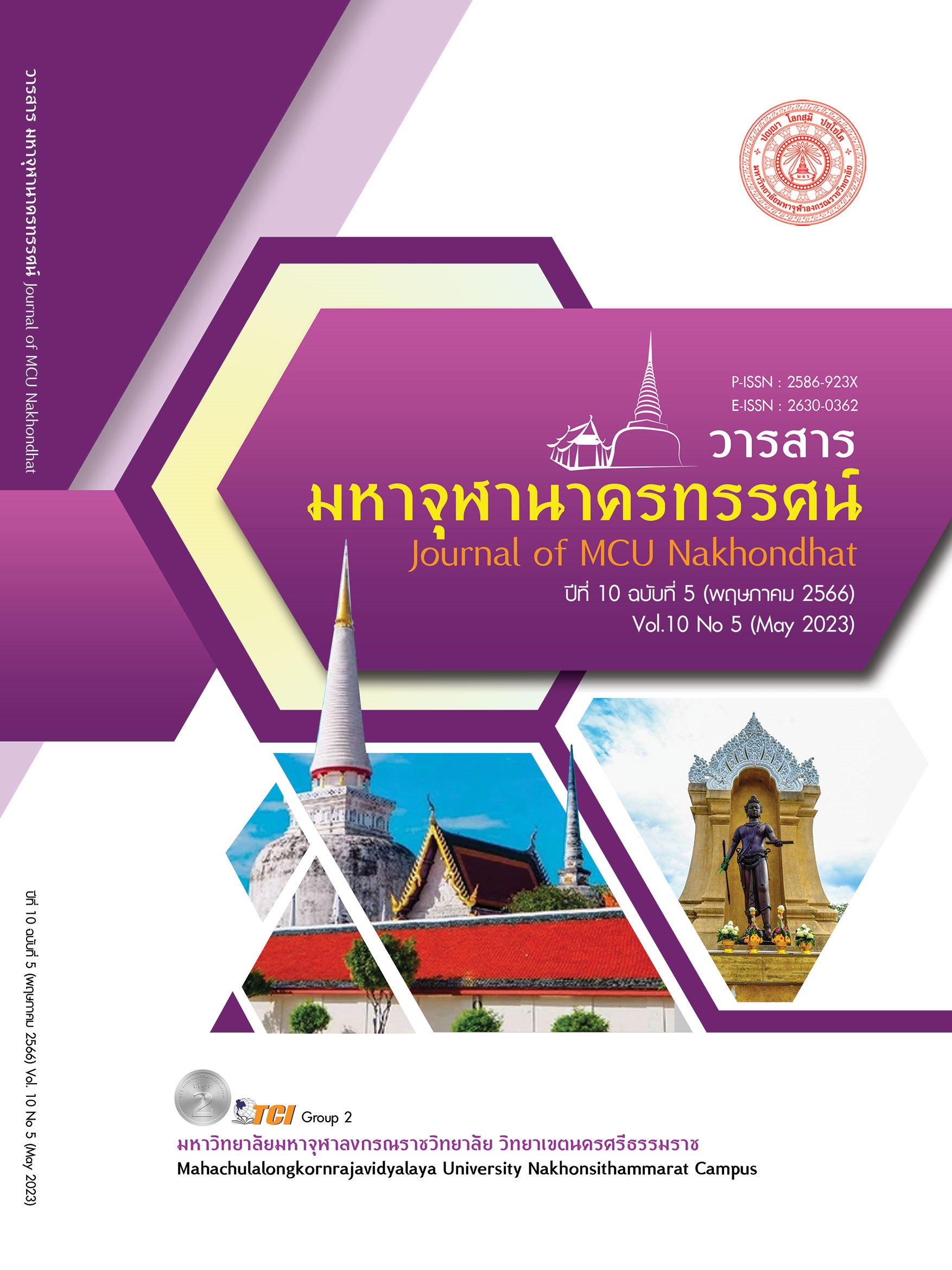EXPLORING STUDENTS’ ATTITUDES TOWARD ENGLISH ACCENTS AND THEIR AWARENESS OF THE VARIETIES OF ENGLISH
Main Article Content
Abstract
The objectives of this research article were 1) to study the attitudes of students toward varieties of English accents and 2) to study the awareness of students towards varieties of English. A type of research used in this study was qualitative research. The population was undergraduate students from a university in the Northeast of Thailand. Eight students were selected by purposive random sampling. Data was analyzed by using the thematic analysis method. The instrument used to collect data was the semi-structured interview. The results of the research were shown as follows. 1) The attitudes of students toward various accents of English can be summarized into three points. 1.1) Firstly, the students had positive perspective and attitudes towards the variety of English accents. 1.2) Secondly, American English was considered as the best variation of the English language, especially pronunciation, that should be taught in English class. 1.3) Finally, the students did not show a significant awareness towards the varieties of the English language as they value communication over accents. 2) The students' awareness of the varieties of the English language were divided into three points. 2.1) Firstly, British, American, Indian, Filipino, Thai, Singaporean, Canadian, French, Italian, and Chinese accents of English were recognized by the students. 2.2) Secondly, American, British, and Australian accents were preferred to be acquired the most by the students. 3.3) Finally, American and British accents were considered as the best two varieties of English accent.
Article Details

This work is licensed under a Creative Commons Attribution-NonCommercial-NoDerivatives 4.0 International License.
References
Ahn, H. (2017). Researching awareness and attitudes: A study of world Englishes and English teachers in South Korea. ใน Thesis. Monash University.
Ambele, E. A. & Boonsuk, Y. (2021). Thai Tertiary Learners' Attitudes towards Their Thai English Accent. PASAA. Journal of Language Teaching and Learning in Thailand, 61(January - June 2021), 87-110.
Baker, W. (2015). Culture and Identity Through English as A Lingua Franca: Rethinking Concepts and Goals in Intercultural Communication. Berlin: De Gruyter Mouton.
Brumfit, C. J. (2001). Individual freedom in language teaching. Oxford: Oxford University Press.
Buckingham, L. (2015). Shades of cosmopolitanism: EFL teachers’ perspectives on English accents and pronunciation teaching in the Gulf. Journal of Multilingual and Multicultural Development, 36(6), 638-653.
Crystal, D. (1997). English as a Global Language. Cambridge: Cambridge University Press.
Dragojevic, M. (2018). Language attitudes. The Oxford research encyclopaedia of intergroup communication. Oxford: Oxford University Press.
Fang, F. (2015). An investigation of attitudes towards English accents at a Chinese university. University of Southampton. Retrieved March 7, 2023, from https://www.researchgate.net/ publication/299418679_Investigating_Attitudes towards_English_Accents_from_an_ELF_ Framework [accessed oct 10 2022].
Fang, F. (2020). Re-Positioning Accent Attitude in the Global Englishes Paradigm: A Critical Phenomenological Case Study in the Chinese Context. Abingdon: Routledge. Retrieved March 7, 2023, from https://www.routledge.com/Re-positioning-Accent-Attitude-in-the-Global-Englishes-Paradigm-A-Critical/Fang/p/book/9781032083438
Garrett, P. (2010). Attitudes to Language. Cambridge: Cambridge University Press.
Geerson, E. (2012). The anti-linguistic imperialism of ELF and its implications for English language learning and teaching in Thailand. Thammasat university journal, 31(3): 49-59.
Hamel, R. E. (2005). Language empires, linguistic imperialism and the future of global languages. México DF: Universidad Autónoma Metropolitana, Dpto. De Antropología.
Jenkins, J. (2015). Global Englishes: A Resource Book for Students (3rd edition). Retrieved March 7, 2023, from https://www.routledge.com/Global-Englishes-A-Resource-Book-for-Students/Jenkins/p/book/9780415638449
Jindapitak, N. & Teo, A. (2014). Thai tertiary English majors’ attitudes towards and awareness of world Englishes. Journal of Studies in the English Language. Retrieved March 7, 2023, from https://so04.tci-thaijo.org/index.php/jsel/article/view/21921
Kachru, B. B. (1992). The Other Tongue: English across Cultures (2nd ed.). Urbana, IL: University of Illinois Press.
Kunschak, C. & Fang, F. (2008). Intelligibility, acceptability, target-likeness: teacher vs. student perspectives on the teaching of pronunciation within an EIL framework. Philippine Journal of Linguistics, 39(1), 1-13.
Saengboon, S. (2015). An Exploratory Study of Thai University Students' Understanding of World Englishes. English Language Teaching, 8(11), 131-154.
Snodin, N. S. & Young, T. J. (2015). Native-speaker varieties of English: Thai perceptions and attitudes. Asian Englishes, 17(3), 248-260.


